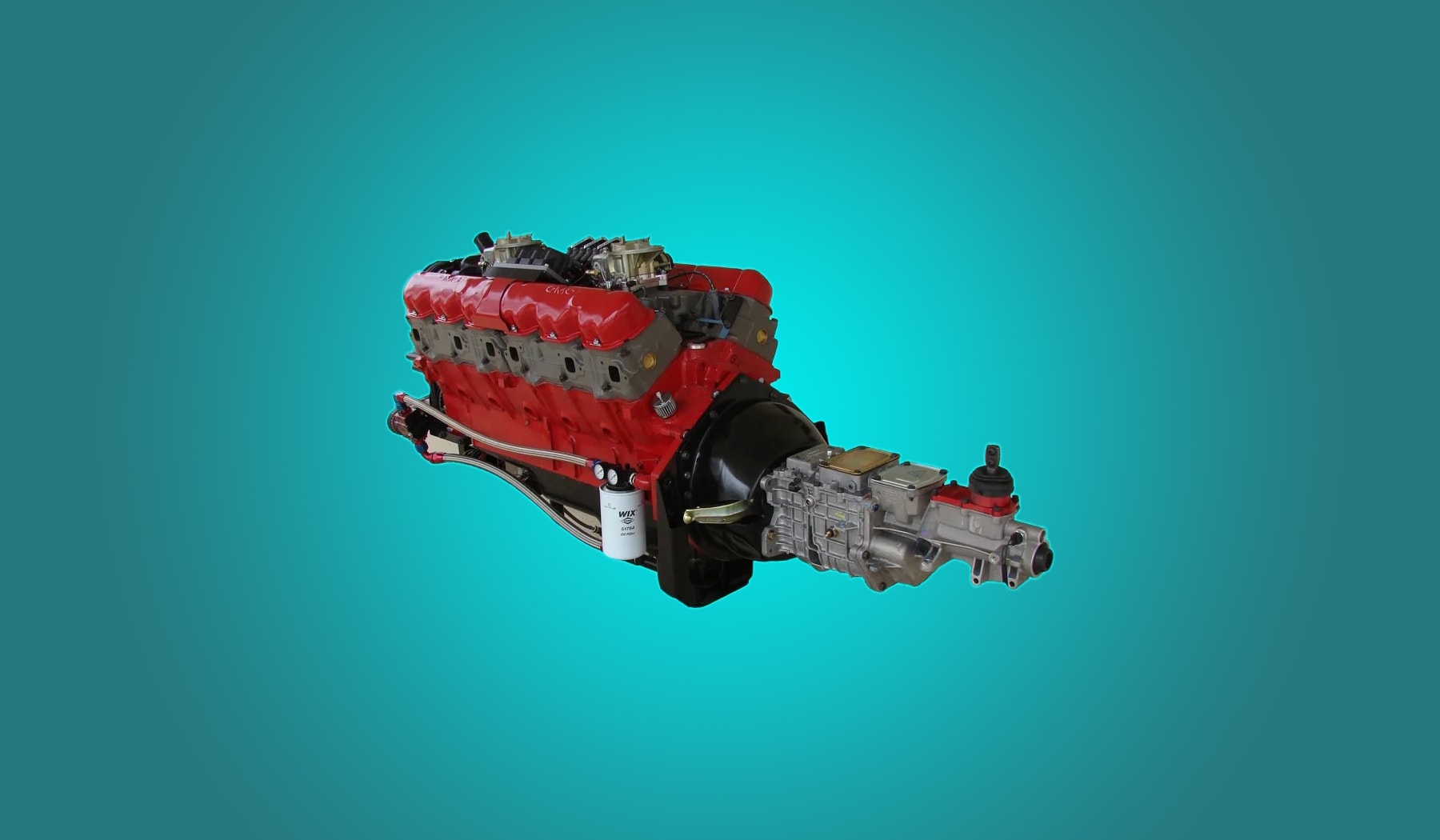
During the fabulous 1960s, American engineers lived by the creed, “There’s no replacement for displacement.” The myriad of high-performance muscle car big-block V8s developed during that decade were a statement of that belief. Still, unquestionably, the best example was the gargantuan Twin Six, GM’s only automotive V12 that made it into production.
Nevertheless, the golden age of muscle did witness the birth of an all-American production V12, albeit one that never powered a muscle car – or any kind of passenger car, for that matter.
GM’s second production V12
Throughout history, General Motors brands have developed a long list of terrific automotive engines, but only two featured twelve cylinders and made it into production vehicles.
The first was a 368-ci (6.0-liter) built by Cadillac from 1930 to 1937. Rated at a modest 135 hp, the engine was based on the architecture of the brand’s iconic Series 452 V16.
Twenty-three years after Caddy’s V12 was discontinued, GM siblings GMC developed another production, V12, that was twice as big.
A twelve-cylinder behemoth
The story of this forgotten V12 started in the late 1950s when GMC sought to offer more power and torque in a commercial engine, one primarily destined for heavy-duty 7000 series howlers, fire trucks, and other large workhorses, but also for stationary use.
Rather than design a new engine from scratch, engineers took the all-new 351-ci (5.8-liter) V6, which was scheduled to debut in select 1960 models, and created a V12 based on its architecture.
Nicknamed “Twin Six,” the new motor looked like two 351s joined at the crank, but of course, it wasn’t exactly that.
During development its development, engineers designed a new one-piece cast-iron block as well as a unique crankshaft and camshaft.
The twin-engine look was given by the separate cylinder heads, four individual valve covers, four exhaust manifolds, two carburetors, and intake manifolds, most of which came from the 351.
Once completed’ GMC’s V12 displaced a whooping 702 cubes (11.5 liters), weighed 1,500 lbs (680 kg), and measured 4.2 feet (1.2 m) in length.
One of the biggest automotive V12s ever built, the Twin Six was heavier and nearly as long as the first-generation smart fourtwo microcar.
Ultra reliable and torquey, but lacking horsepower
Considering its size, you would think that the Twin Six made a lot of power, but that wasn’t the case.
It was rated at only 275 hp (gross), which made it far less powerful than the big-block V8s squeezed between the shock towers of high-performance intermediates, pony cars, and compacts during that decade.
However, the behemoth delivered up to 630 lb-ft (854 Nm) of torque as low as 1,600 rpm, which was more than any muscle car V8 or even the Viper’s legendary V10, which was developed three decades later.
Another characteristic that made the Twin Six attractive to potential buyers was its reliability. According to GMC, the motor could run for up to 200,000 miles (321,869 km) without a major overhaul if properly maintained.
Killed off by diesels
Though it showed much promise, the Twin Six never became as popular as GMC had hoped.
From 1960 to 1965, when the last unit was produced, the division built close to 5,000 engines, which were sold either in its heavy-duty vehicles or as stationary units used as generators, pumps, or cable carts.
GMC wanted to prove that heavy-duty gasoline engines could still be a viable option, but unfortunately, the rise of diesel-powered commercial engines killed off the massive V12.
Making a comeback
The few enthusiasts who remembered this 1960s American V12 always thought that it had the potential to be a lot more special than it was, and some rebuilt surviving units for use in insane hot rods or restored classic trucks.
This quest to revive the Twin Six led to the creation of Thunder V12 LLC., an Evansville, Indiana-based company that specializes in sourcing, restoring, and tuning the forgotten America V12.
Though it’s estimated that less than 200 Twin Sixes have survived in a good enough shape to make a rebuilt possible, Thunder V12 managed to track down a few, restore, and modernize them.
According to the company, one of their rebuilt Twin Sixes can produce up to 425 hp with original-spec internals. Moreover, going past the 600-hp mark is also possible, albeit with some serious aftermarket upgrades.
Powering the gorgeous Blastolene B-702
Despite Thunder V12’s efforts, the Twin Six remained largely forgotten by enthusiasts, but the motor briefly rose to fame in 2017 when the bespoke Blastolene B-702 was revealed.
A coachbuilt masterpiece made possible by Michael Leeds and Randy Grubb, the B-702 was a modern reinterpretation of the stunning French prewar classics.
As the name implied, the Blastolene B-702 was powered by a restored 702-cube Twin Six V12. However, it’s still unclear whether the motor was pushed beyond its factory output ratings or not.
While the bespoke machine received a fair share of coverage after its unveiling, the Twin Six remains an obscure engine these days.
Although it wasn’t impressively powerful, and it never powered a high-performance car, it’s still a fascinating engine from the golden age of muscle, one that deserves respect and recognition.
For more info on the Twin Six, we recommend watching the YouTube video below by Dust Runners Automotive Journal.







 –>
–>








